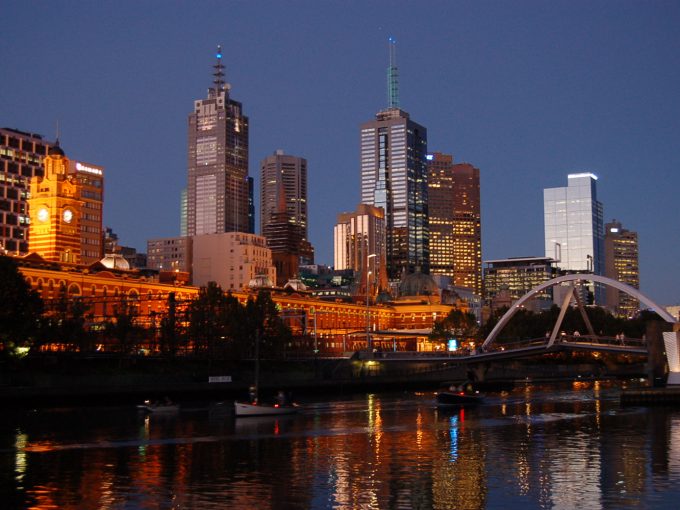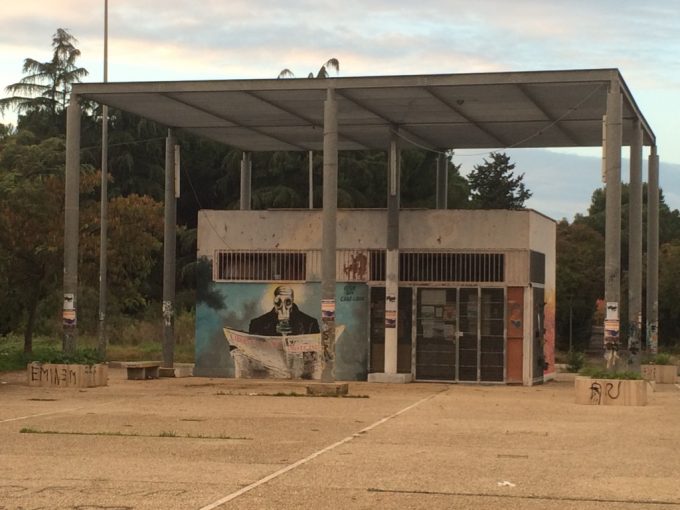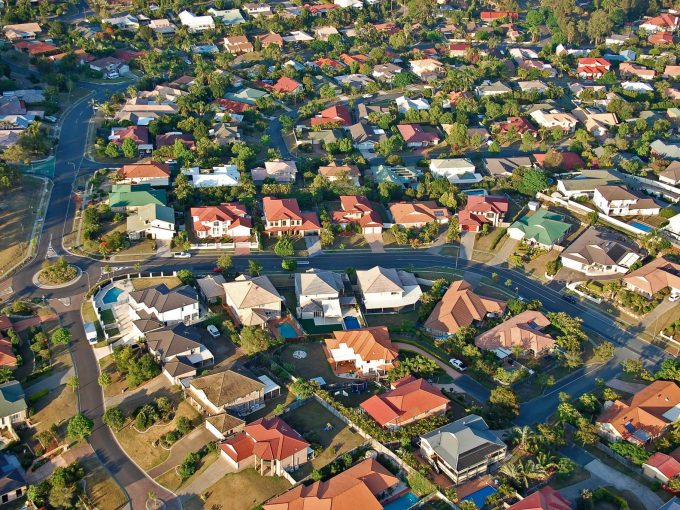Keynote speaker at the 10th Australasian Housing Researchers Conference 2017, Western Sydney University's Dr Dallas Rogers discusses his recent book The Geopolitics of Real Estate: Reconfiguring Property, Capital and Rights.
- What are the key challenges in global real estate markets and how is your book addressing those challenges?
One of the key challenges in 21st century global cities is how to make sense of contemporary global real estate markets. My claim is not that real estate practises are becoming more global or transnational, but rather that global land claiming and property sales were always transnational in settler-societies like Australia. What is different, for example, is the scale and scope of the global capital flows, not the practise itself. Indeed, I argue that global land claiming and property sales were a colonial practice par excellence.
The history of Australian housing is partly a history about foreign land claiming and property sales, but much housing research in Australia takes its silent reference point the period after the Second World War. I argue that the period 1945 through to the mid 1970s should be understood as exceptional, rather than a normative housing landscape to which we might return.
Increasingly from the Second World War, I argue, the politics surrounding land and real estate have been thought of as occurring within the sovereign domains of nation states; bounded and contained within their borders; fixed to particular political eras; and controlled by the regulatory categories that governments create to build collective ideas around citizenship and nationhood. I argue that we should open the temporal scope of the investigation up. And when we do, we find some surprising similarities and continuities between the global land and property sales practises of the colonial and the contemporary eras – as well as the many reported differences.
In short, in this book I set out to historicise the globalisation of real estate, and to construct a genealogy of global real estate practises, rather than record the latest manifestation of global real estate capital flows.
- Can you tell us a bit about your new book, The Geopolitics of Real Estate: Reconfiguring Property, Capital and Rights?
Yes, well I guess the book’s roots can be traced back to 2013, when I set up the Global Real Estate Project to investigate the rise of foreign real estate investment from Asia to Australia. This empirical project took me from housing auctions in Sydney and Melbourne, where Australians that looked ‘Chinese’ were being called foreign investors; to interviewing the Mousetribe in their basement air-raid bunker dorms in Beijing; to foreign real estate investment events in Hong Kong; to the super-rich enclave of Sentosa Cove in Singapore; and to search out digital real estate tech entrepreneurs in Asia.
But my new book is not necessarily about the contemporary fieldwork that was conducted for this project. I wanted to develop a new methodology that would historicise the contemporary politics of real estate. It needed to take account of the relationship between previous and current global land claiming and transnational property sales practises. One of my core claims is that there is a long history of global intermediaries and local governments enabling and underwriting foreign property sales.
I start by suggesting that to understand a crisis in housing you first need to understand the crisis in land that underwrites it. And in Australia, that means returning to the original dispossession of Aboriginal people from their land. By the end of the book I’m discussing digital real estate technologies.
- What can Australia potentially learn from your book and why?
What became clear to me when I was doing the historical research for this book is that real estate and land claiming practises are shaped by the geopolitical moment. The feudal period, colonial period, the First World War, the Second World War, the industrial revolution, the information (digital tech) revolution were all implicated in the creation of certain land and real estate practises. The new geopolitical moment is being defined by the rise of Asia (and China) and the emergence of the digital technologies. We are already seeing major changes in the real estate practises that will come to be associated with this geopolitical moment, and I conclude the book with two observations in this respect.
First, the rise of the global real estate industry has a key role to play in driving individual foreign real estate investment, and should, therefore, be at the forefront of public and policy debate in global cities around the world. But surprisingly little attention has been paid to the mediating role of the global real estate industry. Second, a global, digital expansion of the residential real estate industry is underway. Millions of local residential homes from some of the wealthiest countries around the world are being uploaded for sale onto thousands of Internet-enabled real estate platforms. So we need to pay more attention to digital real estate practises too.
- What do you believe are key issues of discussion concerning the theme of Global Inequality and Housing, and why?
Following from my past point, I think one of the biggest challenges for global inequality and housing is the threat (as well as the opportunities) that the emergence of digital real estate technologies present. I have written about the evolutionary history and the contemporary development of digital real estate, and the future is far from certain. But in my empirical work, I’ve found that the global real estate industry is not using digital technologies to imagine or discover innovative ways to retool housing so that it is more equitable and freedom creating.
In fact, many of these global real estate tech entrepreneurs are uploading the local real estate practises, which created significant housing inequity and exacerbated housing disadvantage in the second half of the 20th century, as international real estate technics for the 21st century.
- What will you be discussing in your address at the AHRC?
It might be a push to talk about my book in 20 minutes, so I’ve decided to talk about some of the empirical studies from the Global Real Estate Project. I’ll cover, in rapid succession, analyses of: digital real estate technologies; foreign investment data; a survey of public perceptions about foreign real estate investment; the education and migration regulatory settings; and a sample of media, policy and industry discourses. I’ll also talk about some interviews with global real estate professionals and investors in Beijing, Singapore, Hong Kong, Sydney and Melbourne. And if I have time, some foreign student interview data about their housing, migration and educational experiences and plans in Australia.
- What are you looking forward to at the 2017 AHRC?
Oh, there are too many papers to recount here! It will be good to see Richard Ronald talk, as it always is. Of course, I want to see Christina Ting talk about newly arrive Chinese migrants in Melbourne. Nicole Gurran’s paper on the impact of digital real estate technologies on urban housing markets looks good. Keith Jacobs is always forward looking and theoretical, and his paper on housing reform and the discourses of ‘competition’ and ‘choice’ is bound to be razor sharp. Emma Power is putting the ethics of care literature to work on housing, and I want to hear her talk about that theoretical innovation.
There are two, or perhaps it is three, historical papers I want to see. Kath Hulse’s historical analysis on wealth and inequality in the late welfare state era and Kathleen Flanagan’s historical analysis, of what looks like hygiene and housing. And Laura Crommelion’s paper could be historical too? In any case, her paper looks at the need to revise the ‘key worker’ discourse, which is an important discussion within the context of the housing affordability debate.
- What are you looking forward to in Melbourne?
I love coming down to Australia’s second-best city. In fact, I was just in Melbourne for the Banksy exhibition and the tennis. And, as always, I’m keen to hit some of your great coffee shops. The League of Honest Coffee is my current favourite in the CBD, but I’m open to other suggestions…
Dr Dallas Rogers is keynote speaker at the Australasian Housing Researchers Conference 2017 (15th to 17th February) hosted at RMIT University, Melbourne.
About the author:
Dr Rogers is a Senior Lecturer within Faculty of Architecture, Design and Planning at the Western Sydney University. His projects investigate the relationship between globalising urban space, urban infrastructure, digital technologies, and housing poverty and wealth. He is the author of The Geopolitics of Real Estate: Reconfiguring Property, Capital and Rights.





